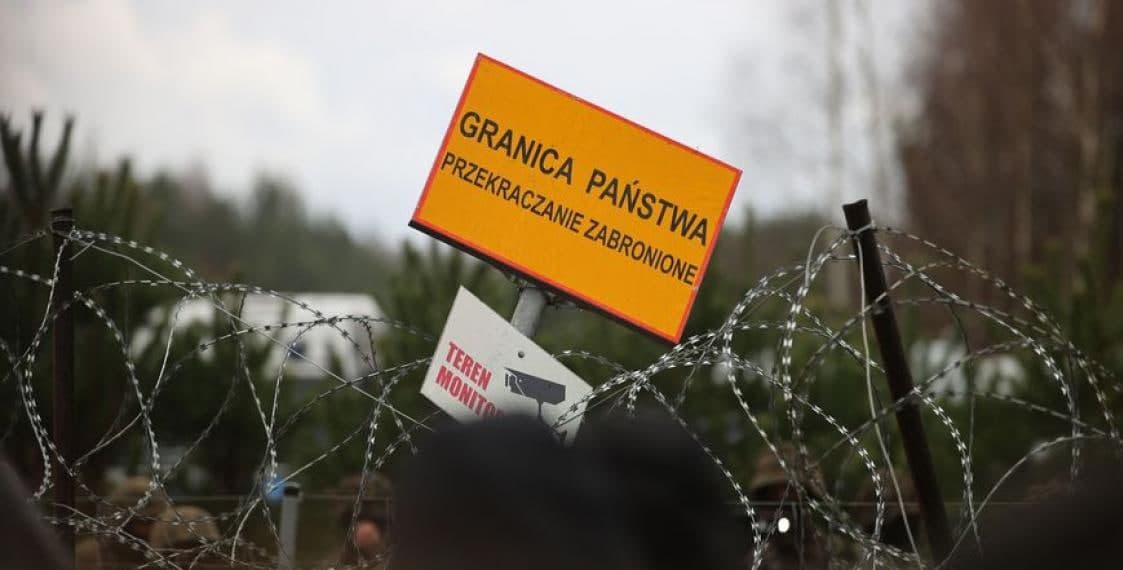The regime threatens Afghan refugees, nuclear weapons and the suspension of gas transit, the West – with new sanctions
 The situation got worse
The situation got worse

The Belarusian regime is preparing for a new round of escalation in relations with the West, threatening a wide arsenal of tools for pressure, ranging from new flows of Afghan refugees, cutting off gas transit and even the deployment of Russian nuclear weapons in response to new Western sanctions. The West ignores blackmail and is preparing to introduce a new package of restrictions. The authorities recognize the threat of the impact of sanctions, especially in connection with the inability to refinance public debt in foreign currency and turn to Russia and China for support.
Although the EU has stopped the flow of migrants through Belarus through active diplomatic efforts, shifting the burden of costs to the Belarusian side, the regime continues to speculate on this issue, threatening to direct new migration flows from Afghanistan to the European borders.
Despite the obvious ineffectiveness of escalation in relations with Western countries, the Belarusian authorities include new tools in their arsenal of pressure. Thus, Foreign Minister Vladimir Makei confirmed that the blocking of gas transit to Europe is one of the possible responses to Western sanctions. He also threatened the in response to future possible actions by the North Atlantic Alliance on the territory of Poland, as well as the activation of the United States and NATO on the territory of Ukraine.
At the same time, Minsk naively expects that some EU countries will not be able to withstand the Belarusian response to the new sanctions, which is perceived by Brussels as a hybrid attack. The EU intends to continue to strongly reflect it on the part of Belarus, responding to all dimensions of the crisis in accordance with EU legislation and international obligations, including fundamental rights. The European Council also spoke in favour of the prompt implementation of the restrictive measures provided for in the fifth package of sanctions and declared its readiness to take additional measures if necessary. Poland is also considering the option of tougher economic sanctions against the Belarusian authorities, including a trade blockade, in the event of an escalation of the situation on the border.
Washington, meanwhile, again announced the conditions for the start of cooperation with Minsk. According to the US Special Envoy for Belarus Julie Fisher, this is the release of all political prisoners, the beginning of a dialogue with democratic forces, which will lead to new elections under international supervision. At the same time, Washington no longer associates Lukashenka with the guarantor of the independence of Belarus, which was typical in the period between 2014 and 2020.
In turn, Lukashenka acknowledged the negative impact of sanctions on the Belarusian economy, urged officials to unite and support domestic producers. He also demanded that the sanctions not affect the upcoming domestic political events, in particular the holding of a referendum on a new constitution in February next year.
In general, Western sanctions have not yet entered into full force, which creates opportunities for Minsk to use some loopholes and continue the transit of Belarusian potash fertilizers through Lithuania and petroleum products through Estonia. However, their future effect is of serious concern to the Belarusian authorities. In particular, a sensitive factor is the fifth package introduced. U.S. sanctions restrictions against the Belarusian national debt, which creates a direct risk of the possibility of its refinancing, including on domestic currency state borrowings. Therefore, Belarus expects to receive another loan from Russia for USD 3.5 billion – through the Eurasian Fund for Stabilization and Development.
At the same time, the main channels of influence of the imposed sanctions on the economy of Belarus are the financial sector, the export of products, the import of technologies, the reduction of transit and the inflow of investments. Further deterioration of the business climate as a result of erroneous actions of the authorities’ risks strengthening these processes. Thus, the pressure sanctioned by Lukashenka on the Austrian telecommunications company A1 will be a serious signal for both Western and Chinese investors. In particular, the Austrian multimodal logistics operator FELB has already launched a new multimodal service for the delivery of goods on the route China-Europe-China bypassing Belarus through Russia and Kazakhstan, which is connected both by the border and migration crisis, as well as by the unfriendly steps of the regime against Austrian economic interests.
Against this background, the Belarusian authorities are making an unsuccessful attempt to initiate high-level and high-level contacts with China. However, against the background of the regime’s recent actions and the deepening crisis in relations with the West, they remain extremely unlikely even during the 2022 Winter Olympics in Beijing.
Subscribe to our newsletter




Situation in Belarus
Constitutional referendum: main consequences


 Video
Video
How to count the political prisoners: are the new criteria needed?


 Video
Video
Paternalism In Decline, Belarusian Euroscepticism, And The Influence Of Russia


 Video
Video












